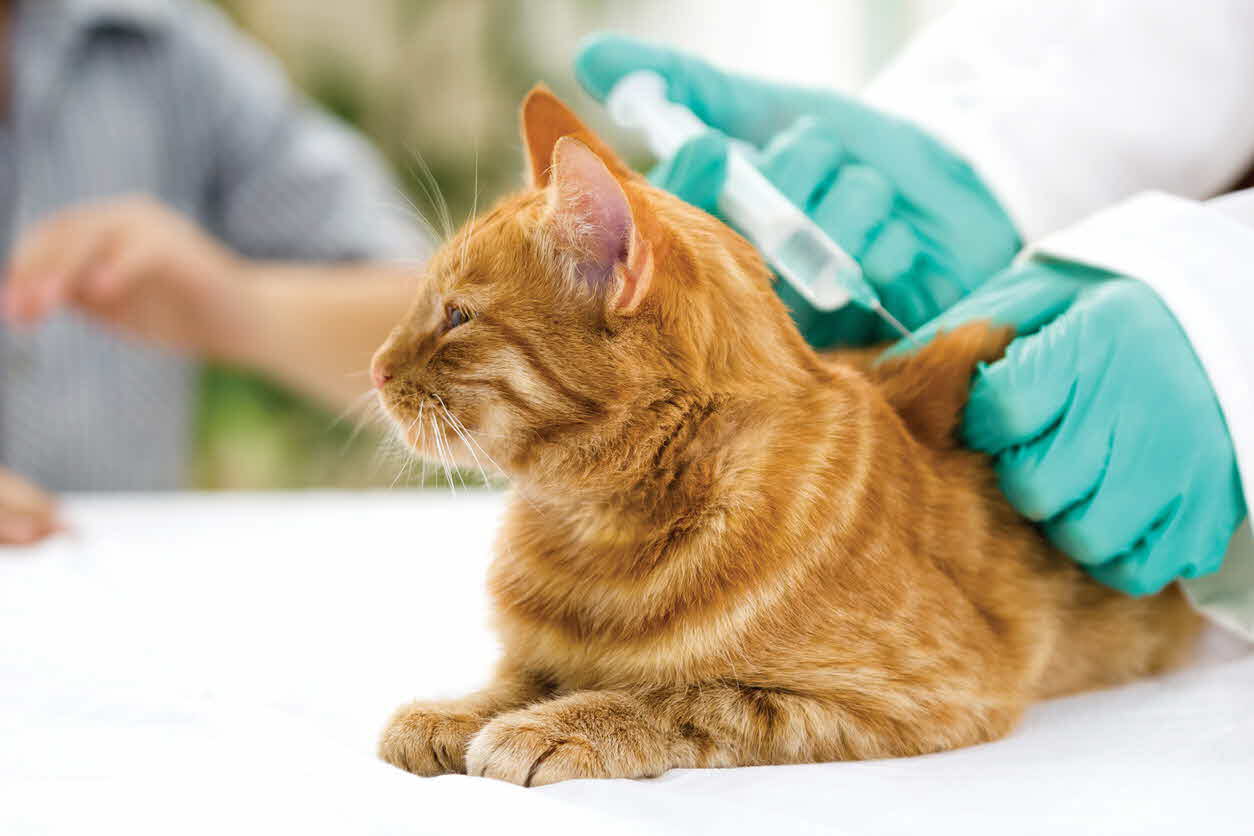Vaccination for pets

Vaccination is one of the most common veterinary procedures undertaken in small animal practice. Vaccinating your pets against preventable diseases is a key component of responsible pet ownership as it helps reduce the risk of them becoming unwell from some severe, life-threatening diseases.
Before the introduction of routine vaccinations in the early 1960s, veterinarians regularly treated canine distemper, an often-fatal disease. Now it’s virtually unheard of in Australia. In contrast, veterinarians still encounter canine parvovirus, particularly in puppies and elderly dogs. Outbreaks still occur in neighbourhoods where vaccination prevalence is low. Treating a puppy with parvovirus is an intensive process and can cost upwards of multiple thousands of dollars in supportive care with a high risk your puppy may still pass away. This is why vaccination is not only in the best interest of your pet’s health but also will help save you financially and emotionally from having to face this terrible disease.
The World Small Animal Veterinary Association (WSAVA) releases guidelines regarding the use of vaccinations. Vaccinations are split into two separate groups; core vaccines and non-core vaccines.
Core vaccines should be administered to all animals to protect them against severe, life-threatening disease that have a global distribution. These include:
Dogs
- Canine distemper virus
- Canine adenovirus (hepatitis)
- Canine parvovirus
Cats
- Feline parvovirus (panleukopaenia or infectious enteritis)
- Feline calicivirus
- Feline herpesvirus (viral rhinotracheitis)
Non-core vaccines are required by animals whose geographic location; local environment or lifestyle places them at risk of contracting specific infections. These include:
Dogs
- Parainfluenza and Bordetella bronchiseptica (Canine Cough)
- Leptospira interrogans (leptospirosis)
Cats
- Feline leukaemia virus (FeLV)
- Chlamydia felis
- Bordetella bronchiseptica
- Feline immunodeficiency virus (FIV)
Vaccination protocols should be determined within a veterinarian-client-patient relationship, based on attributes such as duration of immunity of available vaccines and an individual animal’s requirements.
Every animal should be immunised and each individual animal only as frequently as necessary. Current recommendations are for adult dogs and cats to be vaccinated with core vaccines every 3 years where applicable. Local factors and individual animal requirements may dictate more frequent vaccination scheduling and this should be discussed with your veterinarian. Vaccination is no longer a simple one-size-fits-all proposition.
All puppies and kittens should be vaccinated with an initial course against all core diseases listed about. These are routinely given in 3 separate boosters at 6-8 weeks, 10-12 weeks and 16 weeks. The suggested age varies with the manufacturer and the vaccine used, with some vaccine manufacturers providing early finish vaccine schedules which allow 2 instead of 3 boosters. The suitability of this option can be discussed further with your local veterinarian. After they have received their initial course they will require a booster 12 months later and then progress to an adult schedule.
Non-core vaccines such as the ‘canine cough’ vaccine in dogs are given on an annual basis and can be discussed with your veterinarian.
In some parts of Australia, additional vaccinations for local diseases such as leptospirosis in dogs and FIV in cats are necessary to protect pets. This will depend on factors such as where the animal lives, its lifestyle and the amount of time spent outdoors, as well as its age and general health.
Pet rabbits also require vaccinations against Calicivirus. Calicivirus is an infectious disease that leads to death in unvaccinated rabbits. It is mostly transmitted via contact with infected rabbits and vectors such as flies and mosquitoes, but can also be spread via contact with contaminated hay / bedding or clothing. The AVA recommends the following vaccination protocols to help protect your rabbit against calicivirus.
Kittens (Baby rabbits): 3 separate vaccinations given at 4,8 and 12 weeks of age, then every 6 months for life
Adults (who have not been previously vaccinated): 2 vaccinations 1 month apart, then every 6 months for life.
More information about Calicivirus and the release of new strains can be found here.
Although vaccinations for your pet may be every 3 years, it is still important to have annual health checks to ensure any health concerns are proactively detected and managed accordingly to ensure your pet is kept as healthy as possible.
